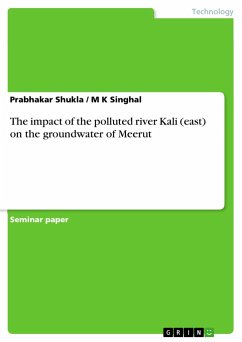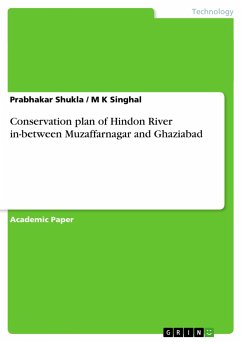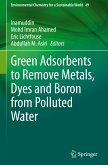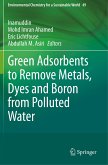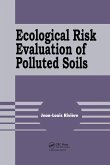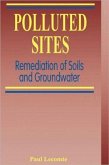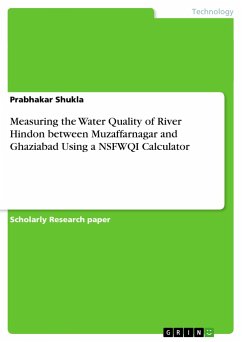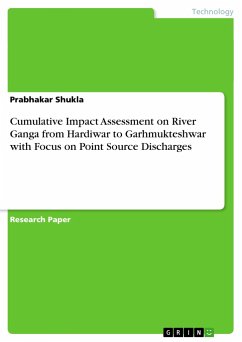Seminar paper from the year 2014 in the subject Environmental Sciences, grade: 8.5, Indian Institute of Technology Roorkee (IIT Roorkee), course: EMRL, language: English, abstract: Now-a-days the groundwater quality is continuously being degraded due to the percolation of polluted water from the wastewater drains, polluted rivers and ponds. As a result its quality has not remained potable in many parts of the country. To assess the impact of the highly polluted Kali River, physic-chemical characterization has been performed on different groundwater samples collected from hand pumps and tube wells from 7 villages located at different distances from the pollution source. The main water quality parameters that have been used to assess the quality of groundwater abstracted through shallow and deep hand pumps placed in the different villages along the banks of River Kali (East). Color, taste and Odor, pH, EC (us/cm), TDS(mg/L), Hardness(mg/L) B.O.D(mg/L), C.O.D(mg/L), Chloride(mg/L, Iron(mg/L, Nitrate (mg/L), Sulphate(SO4), Sodium(mg/L), Potassium(mg/L), Calcium(mg/L), Magnesium(mg/L), Zinc (mg/L), Lead (mg/L), Chromium (mg/L), Cadmium (mg/L). the result shows that worst affected water source are the private hand pumps which are located closest to the River Kali. Unfortunately, deeper govt. hand pumps were also found violating the permissible limits for some of the parameters. Only very deep government tube wells (up to 120 m) had values within stipulated range, indicating that groundwater aquifer contamination is extreme nearer to the surface of ground.
Hinweis: Dieser Artikel kann nur an eine deutsche Lieferadresse ausgeliefert werden.
Hinweis: Dieser Artikel kann nur an eine deutsche Lieferadresse ausgeliefert werden.

